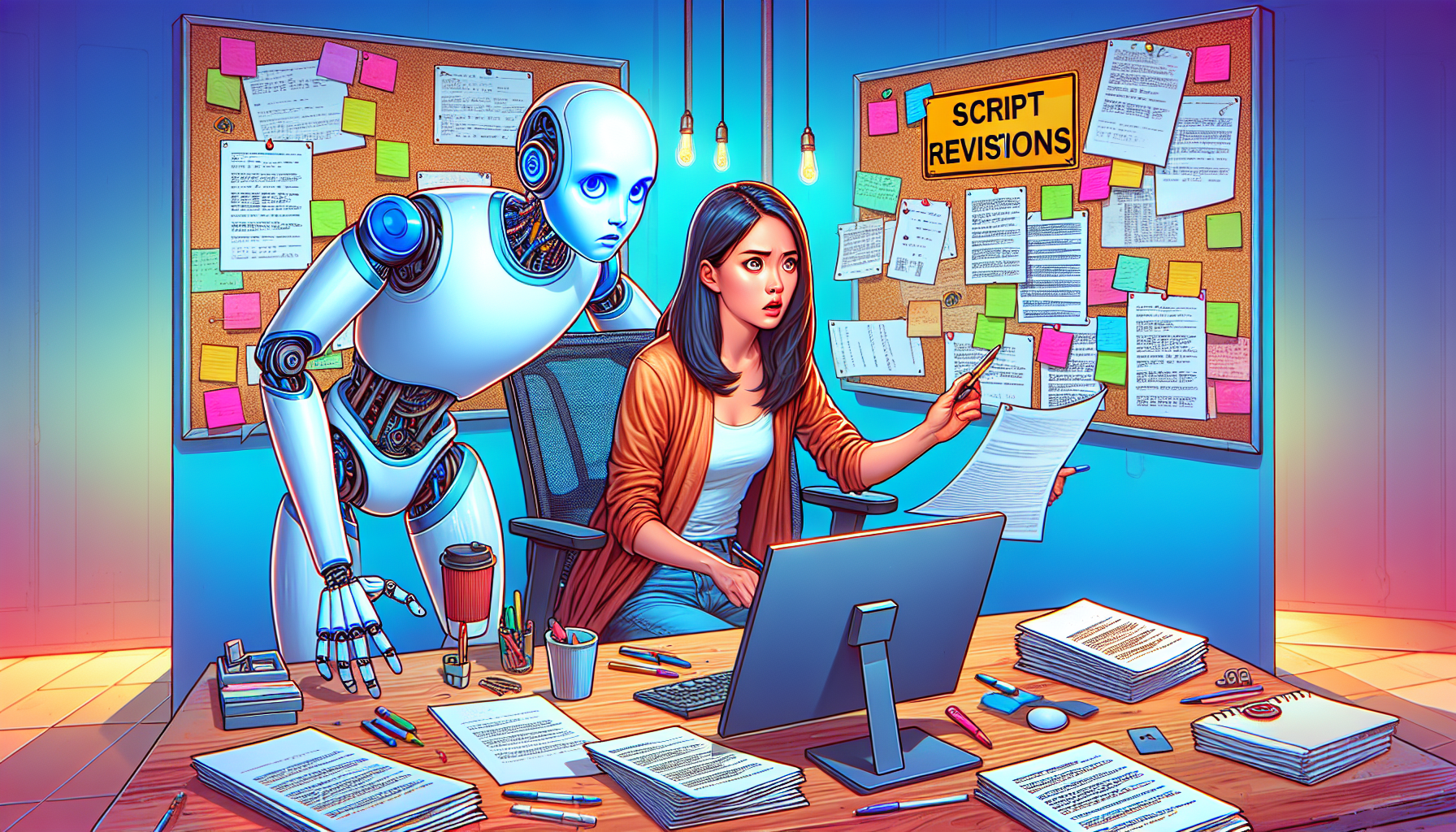
When Robo-Shakespeare Drops the Quill
Imagine this: a silicon-brained Shakespeare churning out Hamlet 2: Electric Boogaloo while sipping on virtual Earl Grey. Sounds cool, right? Alas, the reality of AI scriptwriting is more mildly amusing B-movie than Oscar-winning masterpiece. So, why isn’t our robotic Bard revolutionizing Hollywood yet? Let’s dive into the drama, intrigue, and occasional slapstick comedy of AI-birthed screenplays.
The Dialogue Dilemma
First up, the dialogue. You see, humans are astonishingly complex creatures. We have nods, winks, inside jokes, and sarcasm layered thicker than a hipster’s beard. Teaching an AI to grasp these subtleties? It’s like teaching your dog to appreciate the nuanced flavors of a fine wine. Just doesn’t compute, does it?
AI can regurgitate patterns and mimic tropes, but conversational flow? Genuine emotion? That’s the Mount Everest of its challenges. Picture a romantic scene transforming into an awkward exchange at a robot speed-dating event. Oh, the humanity (or lack thereof)!
The Plot Predicament
Next, let’s chat about plot. Humans adore a good narrative arc—the highs, the lows, the wait, what just happened? moments that keep us hooked. But AI treats every twist and turn like a GPS calculating the shortest route. The result? A rollercoaster ride that feels more like a gentle, predictable stroll in the park.
Sure, AI might know the structure of a blockbuster—the inciting incident, rising action, climax, falling action, and resolution. But nailing the soul-stirring, unexpected storytelling that grips audiences? That’s still a wild goose chase in the world of algorithms.
Character Quagmire
Let’s not forget character development. A charming villain, a flawed hero, or a quirky sidekick can make or break a script. Unfortunately, AI tends to create characters with the depth of a kiddie pool. Imagine a villain monologuing about world domination with the emotional range of a toaster. Scary? Yes, but for all the wrong reasons.
Creating believable, multi-dimensional characters involves an understanding of human psychology, cultural nuances, and the indefinable spark that makes a character leap off the page. For AI, crafting such vivid personas is as elusive as finding a needle in an infinite haystack of binary code.
The Creative Chasm
Let’s address the elephant in the writers’ room: creativity. Algorithms excel at patterns and rules, but creativity often means breaking those very rules. Think Picasso, not paint-by-numbers. AI might be great at remixing existing ideas, but groundbreaking innovation? That’s where it stumbles. It’s the difference between an AI-generated mashup of every rom-com ever made and the fresh, unpredictable allure of a timeless classic.
AI can analyze past scripts and generate something new-ish, but to capture the magic of genuine creativity? It’s like expecting Shakespeare’s ghost to guest-write an episode of The Simpsons. Highly unlikely, and probably a tad chaotic.
The Editing Eccentricities
AI scriptwriting doesn’t just face hurdles; it hurdles straight into a maze with hidden trapdoors. Even when an AI-generated script finally emerges, it’s often riddled with quirks that make a harried editor contemplate a career change to knitting. The dialogue might sound wooden, character arcs could resemble a Mobius strip, and emotional beats may ping-pong between melodrama and monotony.
But wait, you say, editing is part of the process! True. However, with humans, this process is like sculpting a masterpiece from marble. With AI, it’s more akin to cobbling a patchwork quilt with a blindfold and mismatched socks.
The Human Factor
The silver lining? True scriptwriting requires a human touch. AI can assist, augment, and inspire, but it doesn’t (yet) replace the quirky, imaginative, and wonderfully unpredictable nature of human creativity. We can revel in the knowledge that our industry isn’t about to be taken over by robotic overlords who mistake plot twist for software glitch.
So, embrace the chaos, celebrate the craft, and next time someone mentions AI in scriptwriting, just smile knowingly. We’re safe—for now.






